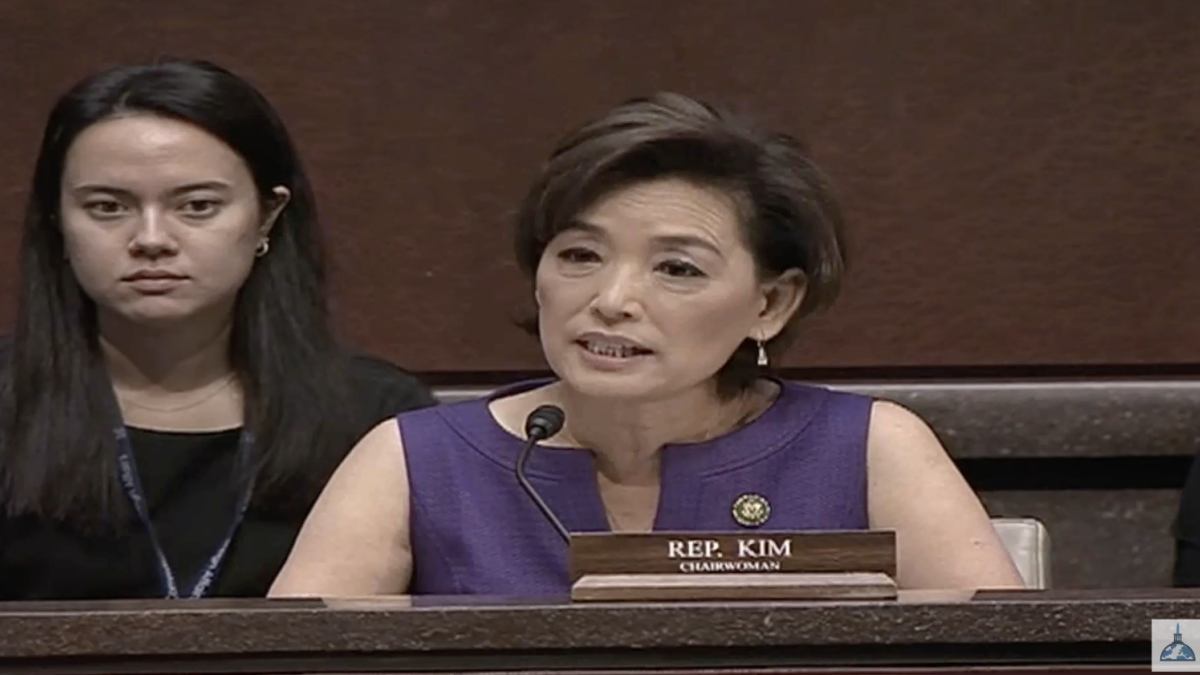Washington, DC – Today, U.S. Representative Young Kim (CA-40), Chairwoman of the Subcommittee on the Indo-Pacific, delivered an opening statement at her subcommittee hearing titled, “Achieving Peace through Strength in the Indo-Pacific: Examining the FY24 Budget Priorities.”
Watch her deliver her opening statement HERE and read her remarks below.
This hearing is important for U.S. Congress to shape the United States’ approach, resourcing, and goals in East Asia and the Pacific Islands. The Biden Administration has correctly identified the People’s Republic of China (PRC) as the only competitor with both the intent to reshape the international order and the economic, diplomatic, military, and technological power to do it. The October 2022 National Security Strategy further says that Beijing has ambitions to create an enhanced sphere of influence in the Indo-Pacific.
Yet despite this recognition, we are still woefully under-performing in the Indo-Pacific, and we are not competing with the PRC from a position of strength.
East Asia and the Pacific Islands are on the frontlines of our competition with China, and yet EAP remains a small fraction of the State Department’s overall budget and programming. And instead of pursuing competitive actions against the PRC, we are chasing Chinese Communist Party (CCP) officials for fruitless engagement.
The PRC presents a significant threat to the well-being and prosperity of key U.S. allies and partners in the Indo-Pacific. None understand this reality better than Taiwan. While Congress has signed off on multiple arms sales to support Taiwan and enhance its defense, there still remains a $19 billion backlog in weapons deliveries. My Arms Export Delivery Solutions Act was passed in last year’s NDAA. Yet the report we received from your Department earlier this year did not clearly lay out a “description of the actions the United States is taking to expedite deliveries of defense articles and services to Taiwan, including whether [we will provide] an interim capability or solution”, which I explicitly asked for in my bill. We must ensure we are doing all that we can, now, to bolster Taiwan’s defense against an increasingly aggressive PRC.
It is clear our allies in the Indo-Pacific share our concern about the PRC’s growing aggression towards Taiwan. When I traveled with Chairman McCaul to Northeast Asia earlier this year, we heard the same thing from all our allies: that Ukraine today could be Taiwan tomorrow, and that U.S. leadership is key to bringing democratic countries together in the fight against authoritarianism.
Our allies and partners are also worried about the growing use of economic coercion. Last month, I held a roundtable with the Ambassadors from South Korea and Japan, where we discussed how we could work together to combat economic coercion. The United States’ Indo-Pacific Economic Framework is not enough to meet the growing trade and investment needs in the region, and I was disappointed to hear that the Biden Administration was not interested in pursuing free trade or investment deals with our partners. We must have a concrete economic agenda in Asia to be competitive in the region.
Nowhere is this more true than in Southeast Asia, which has immense economic potential. I look I look forward to traveling to the region next month to discuss security, economic, energy and human rights cooperation.
Finally, we all agree that we are in an era of strategic competition with China and that this competition requires a whole-of-government approach. Yet I am worried about the growing trend of the State Department not being forthcoming with information about its engagements with the PRC, or actions taken by the PRC that directly affect U.S. national security, such as the spy balloon and the spy base in Cuba. In June, I sent a letter noting concern about your trip to Beijing on the anniversary of Tiananmen. I am also disappointed that this hearing, originally scheduled for June, was pushed due to Secretary Blinken’s travel to Beijing, which the Department itself admitted would not be a “game changer”. I have also sent letters about getting briefings about the spy balloon and spy base in Cuba. We cannot pull together a whole-of-government approach to combat growing PRC aggression if the State Department refuses to engage with Congress, and the American people, in a timely manner.
In short, the Indo-Pacific region is critical to U.S. national security and competition with the PRC. We must do more with our allies and partners, especially economically, to maintain U.S. leadership in the region. And to properly compete with China, the U.S. government must be in lockstep and communicating openly across branches about the threat the PRC presents, rather than prioritizing fruitless engagement with our counterparts in Beijing.
I look forward to hearing from the witnesses and Members of the Subcommittee on these important issues.




